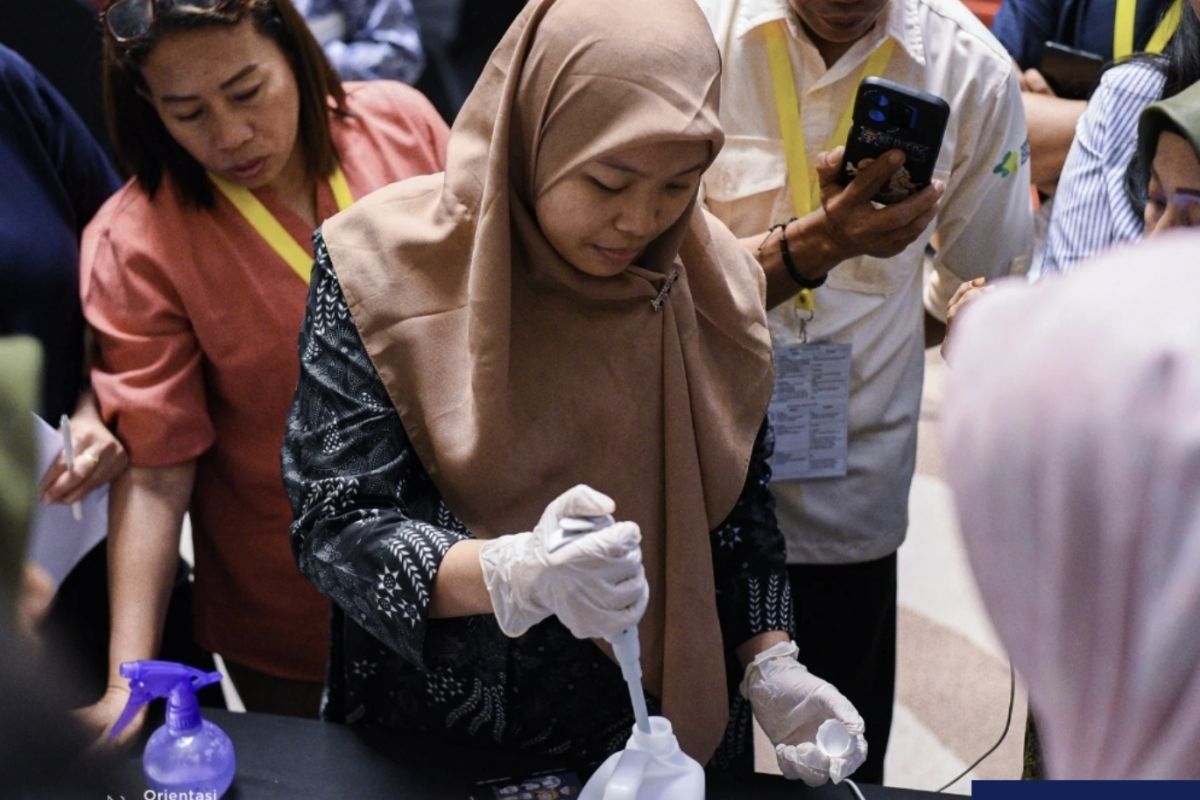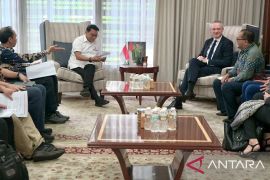WHO representative for Indonesia, N. Paranietharan, in a press release issued on Tuesday, informed that the collaboration will focus on building health system resilience and increasing access to essential health services.
"The COVID-19 crisis has taught us many lessons. However, no lesson is more important than the need for solidarity between countries and partners in protecting health, well-being, and strengthening emergency response preparedness and capacity," he said.
He added that the EU has been supporting funding for eight ASEAN countries, including Indonesia, for responding to the COVID-19 crisis through the Southeast Asia Health Pandemic Response and Preparedness program, which has been running for the past three years.
The initiative seeks to support the efforts of the WHO and the Indonesian Health Ministry to strengthen health system resilience and reduce disruptions of essential health services in the world's fourth-most populous country by focusing on vulnerable and marginalized groups, Paranietharan added.
Besides supporting the strengthening of the health system, the initiative is playing an important role in building cross-stakeholder mechanisms, such as intra-action studies, which bring together a number of key ministries, academic institutions, and civil society organizations, to strengthen Indonesia's pandemic preparedness and response strategy.
According to him, the collaboration will also adjust with international best practices and promote joint health action across governments and society.
The initiative will also help establish a laboratory information management system and ensure that more than one thousand laboratories in Indonesia are equipped to carry out polymerase chain reaction (PCR) tests and genome sequencing, which remains an important priority, Paranietharan said.
The initiative will empower more than 900 health workers across Indonesia to maintain access to quality essential health services at hospitals and community health centers, including COVID-19 case management, maternal and child health, immunization, telemedicine, environmental health surveillance, and emergency health services.
Meanwhile, EU Ambassador to Indonesia, Denis Chaibi, said that the funding from the European Union reflects its commitment to strengthening pandemic prevention, preparedness, and response and providing real results in the field.
Chaibi added that the multi-year partnership between the WHO and the EU is in line with Indonesia's health transformation agenda, which was launched in 2022 to provide long-term benefits, as it seeks to help prepare for and prevent health crises such as COVID-19 outbreaks, influenza, and other respiratory diseases.
The WHO has also committed to helping the Indonesian government strengthen the national laboratory network, improve surveillance, and intensify intersectoral coordination.
According to Paranietharan, the effort will also complement primary health services, help tackle non-communicable diseases, and control antimicrobial resistance, in addition to addressing cross-sector challenges such as climate change, gender equality, human rights, and disability inclusion.
Related news: ASEAN health ministers discuss future pandemic mitigation
Related news: BRIN focusing on genomic research to mitigate future pandemics
Related news: ASEAN finance, health ministers discuss pandemic anticipatory measures
Translator: Andi Firdaus, Resinta Sulistiyandari
Editor: Azis Kurmala
Copyright © ANTARA 2024












